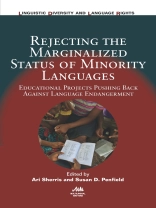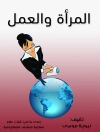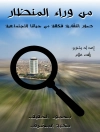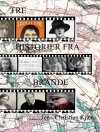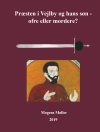This book explores Indigenous, tribal and minority (ITM) language education in oral and/or written communication and in the use of new technologies and online resources for pedagogical purposes in diverse geopolitical contexts. It demonstrates that ITM language education transpires in both formal and informal spaces for children or adults and that sometimes these spaces are online, where they become de-territorialized discourses of teaching and learning.’ The volume brings together examples of ITM language education that are challenging the forces that flatten ‘languacultures’ into artefacts of history. It also examines the economic and material realities of the people who live in and through their ‘languacultures’, or who aspire to do as much. The book will be useful for educators and all those interested in Indigenous and minority language issues, as well as for a wide range of undergraduate, graduate and research contexts where topics of language education and minority rights are the focus.
Зміст
Foreword: Gerald Roche
Chapter 1. Ari Sherris & Susan Penfield: Aspiring to Strength and Possibility for Indigenous, Tribal, and Minoritized Languages, Cultures, Bodies, and Lands: An Introduction
Chapter 2. Colleen Alena O’Brien: The Challenges of Kamsá Language Revitalization in Colombia
Chapter 3. Tania Ka‘ai: Okea Ururoatia [Fight Like a Shark]: The Regeneration of Native Māori Language Speakers in Aotearoa New Zealand
Chapter 4. Annika Pasanen: Becoming a New Speaker of Saami Language Through Intensive Adult Education
Chapter 5. Douglas Mc Naught: From Mountains to Megabytes: The Digital Revolution in Indigenous Language Education in Taiwan
Chapter 6. Robert Teare: “Manx? That Was Never a Real Language!”
Chapter 7. Joan A. Argenter & Virginia Unamuno: An Ethno-Educational Project with Wichi Communities in Argentina: Acquiring Language-in-Culture Knowledge from Traditional Practices
Chapter 8. Kū Kahakalau: Place-based Liberatory Education with Aloha for an Independent Hawai’i
Chapter 9. Ari Sherris: Situated Safaliba Practices in School Literacies That Resist Dominant Discourses in Ghana
Coda: Teresa Mc Carty
Про автора
Susan D. Penfield is Affiliate Faculty in the Department of Linguistics, University of Montana and University of Arizona, USA. Her research interests include Indigenous language policy and planning, revitalization, documentation and interdisciplinary research.
